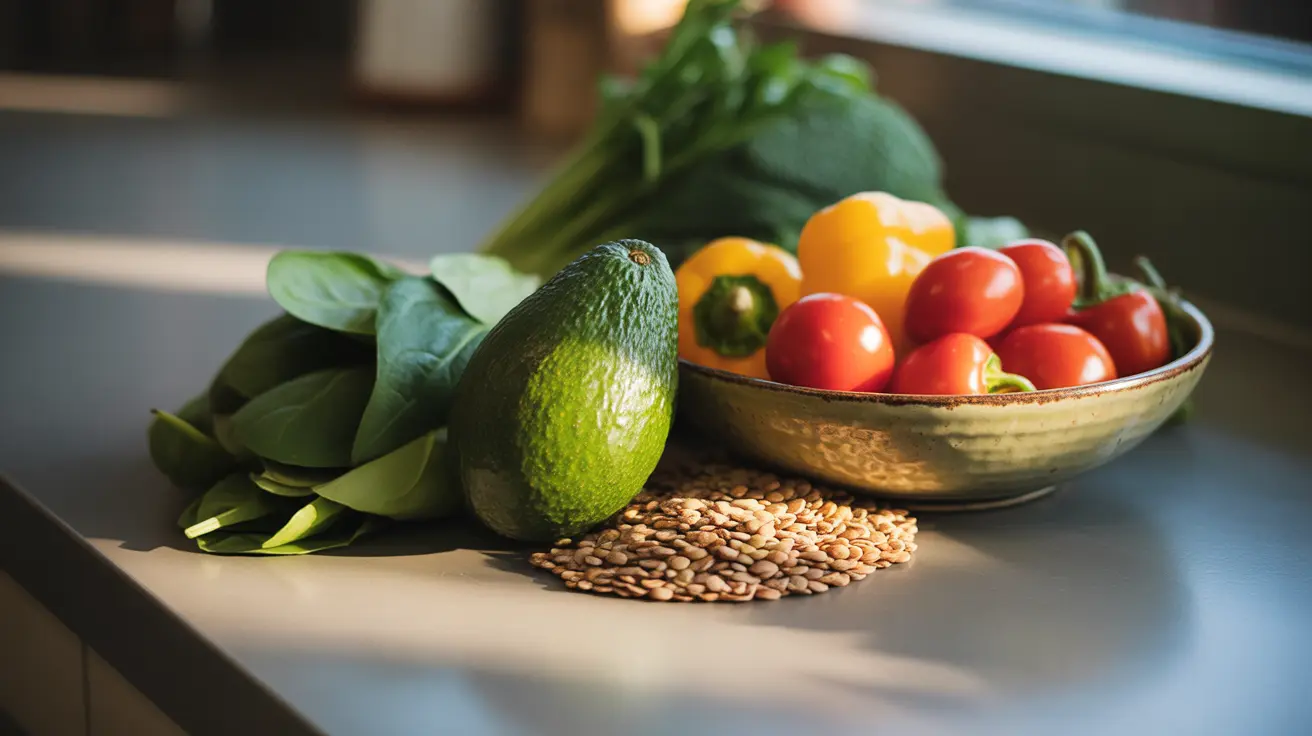Folate, a crucial B-vitamin, plays a vital role in numerous bodily functions, from DNA synthesis to red blood cell formation. Understanding which foods are naturally rich in folate can help you maintain optimal health and prevent deficiency-related complications.
In this comprehensive guide, we'll explore the best dietary sources of folate, its importance for various health conditions, and how to incorporate folate-rich foods into your daily meals effectively.
Best Natural Sources of Folate
Many wholesome foods contain significant amounts of natural folate. Here are some of the richest sources:
Dark Leafy Greens
Dark leafy greens are exceptional sources of natural folate:
- Spinach: One cup provides about 260 mcg
- Kale: Contains approximately 100 mcg per cup
- Collard greens: Offers about 170 mcg per cup
- Arugula: Provides roughly 80 mcg per cup
Legumes and Beans
Legumes are excellent folate sources:
- Lentils: One cup cooked contains about 350 mcg
- Black beans: Provides approximately 250 mcg per cup
- Chickpeas: Offers about 280 mcg per cup
- Kidney beans: Contains roughly 230 mcg per cup
Fresh Fruits
Several fruits contribute meaningful amounts of folate:
- Citrus fruits (oranges, grapefruits)
- Avocados
- Pomegranates
- Strawberries
Understanding Folate vs. Folic Acid
While both forms support health, natural folate and synthetic folic acid have distinct characteristics. Natural folate from whole foods is generally better absorbed and utilized by the body compared to synthetic supplements.
Natural Folate Benefits
Natural folate offers several advantages:
- Better bioavailability
- Fewer risks of excessive intake
- Comes packaged with other beneficial nutrients
- More suitable for people with MTHFR gene variations
Folate's Role in Pregnancy and Development
Adequate folate intake is crucial during pregnancy for:
- Preventing neural tube defects
- Supporting proper fetal development
- Reducing the risk of pregnancy complications
- Maintaining maternal health
Recommended Foods for Pregnant Women
Pregnant women should focus on these folate-rich foods:
- Dark leafy greens
- Legumes
- Eggs
- Fortified whole grains
- Asparagus
Signs of Folate Deficiency
Common symptoms of folate deficiency include:
- Fatigue and weakness
- Shortness of breath
- Headaches
- Pale skin
- Difficulty concentrating
Frequently Asked Questions
What are the best natural foods high in folate that I can include in my diet?
The best natural sources include dark leafy greens (spinach, kale), legumes (lentils, black beans), fruits (oranges, avocados), and vegetables like asparagus and Brussels sprouts. These foods provide readily absorbable folate along with other essential nutrients.
How does folate differ from folic acid, and which one is better for health?
Folate is the natural form found in foods, while folic acid is synthetic. Natural folate is generally better as it's more bioavailable and comes with complementary nutrients. However, folic acid supplements may be necessary for some individuals, particularly during pregnancy.
Why is folate important during pregnancy, and which foods should pregnant women focus on?
Folate is crucial during pregnancy for preventing neural tube defects and supporting proper fetal development. Pregnant women should focus on dark leafy greens, legumes, eggs, and fortified whole grains. A combination of dietary sources and prescribed prenatal vitamins is typically recommended.
What symptoms indicate a folate deficiency, and how can it be prevented through diet?
Symptoms include fatigue, weakness, shortness of breath, and difficulty concentrating. Prevention involves regular consumption of folate-rich foods and, when recommended by a healthcare provider, appropriate supplementation.
Can eating foods rich in folate help reduce the risk of anemia and support overall cell health?
Yes, adequate folate intake helps prevent megaloblastic anemia and supports proper cell division and DNA synthesis. Regular consumption of folate-rich foods contributes to overall cellular health and proper red blood cell formation.




